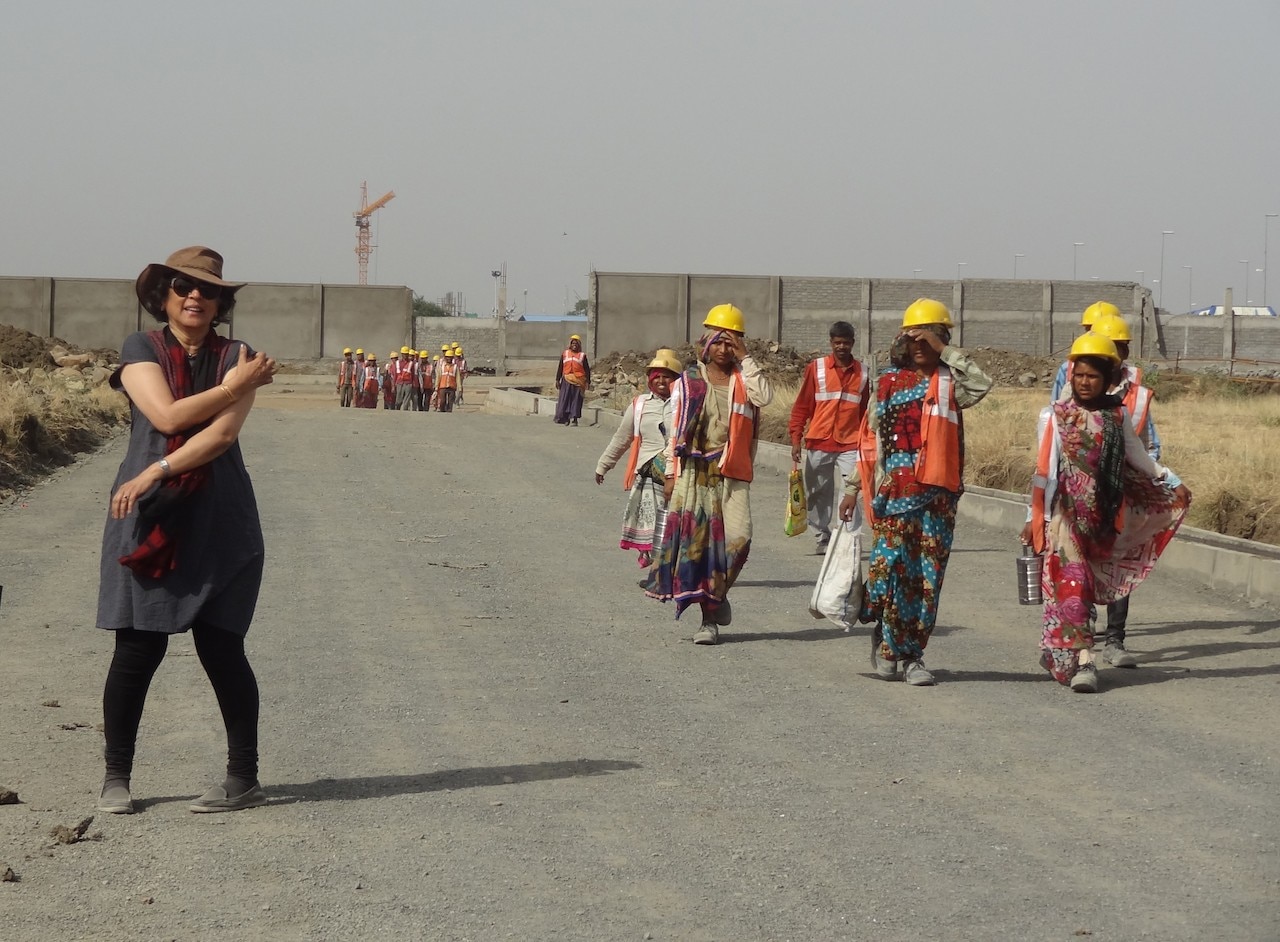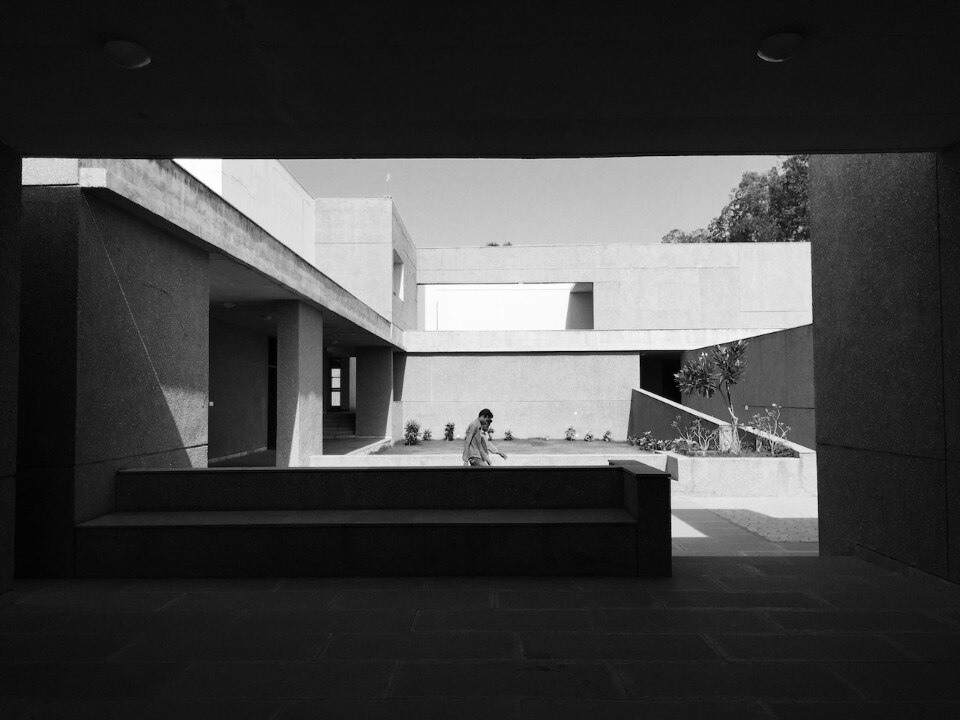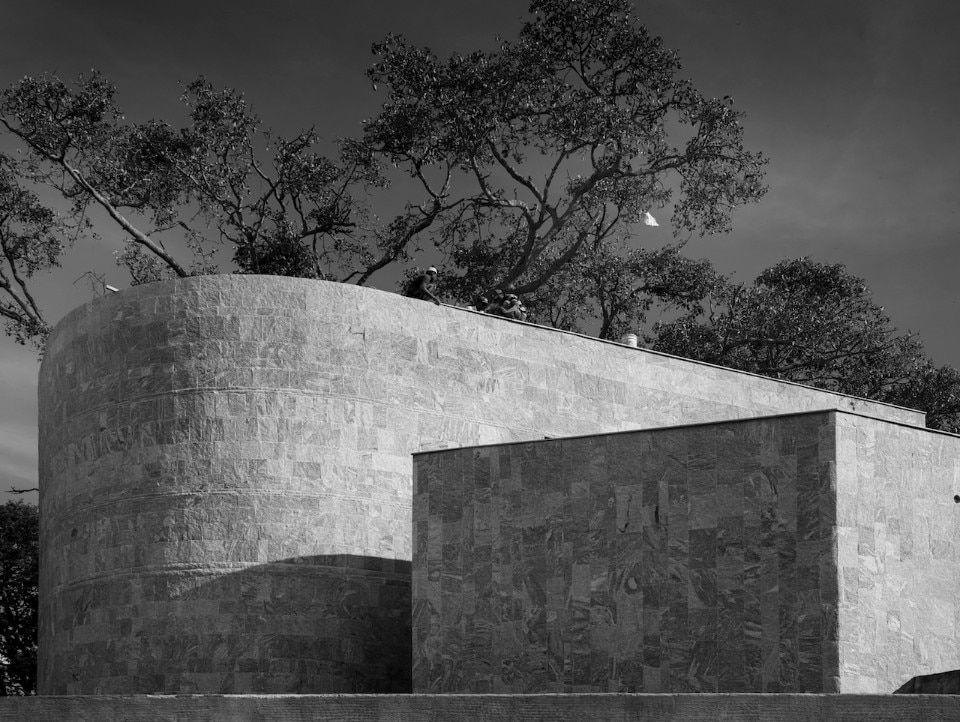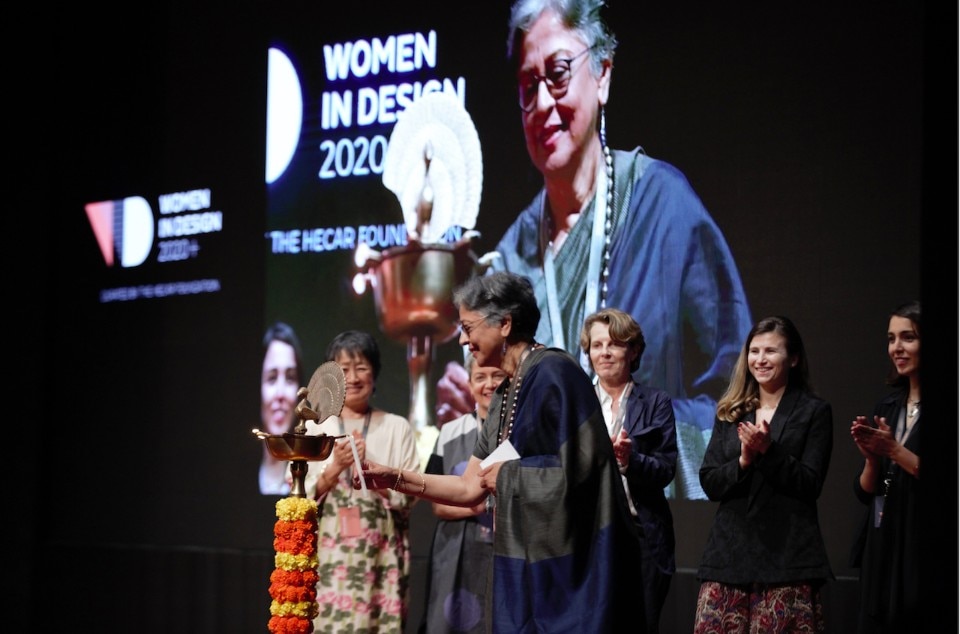The ongoing deliberations on women in design, a point of concern globally, received a befitting ode through Women in Design 2020+, a recent conference in Mumbai in its second edition, curated by The HECAR Foundation. The conference brought together 35 revolutionary women from the fields of architecture, design, building, arts, and allied fields from India, Sri Lanka, Cairo, Spain, Lebanon, Australia, Iran, London, and the US. It enabled cross-culture interactions through empowering stories on their riveting journeys, pioneering work and ideologies, and extended to discussions on archiving their work and safeguarding their interests. Seeking ‘values’ over strategies, considering work as ‘personal’ and not mere ‘business’, accepting one’s sensitivity as strength, humanising men, and working for/with the community, were some of the brave admissions.
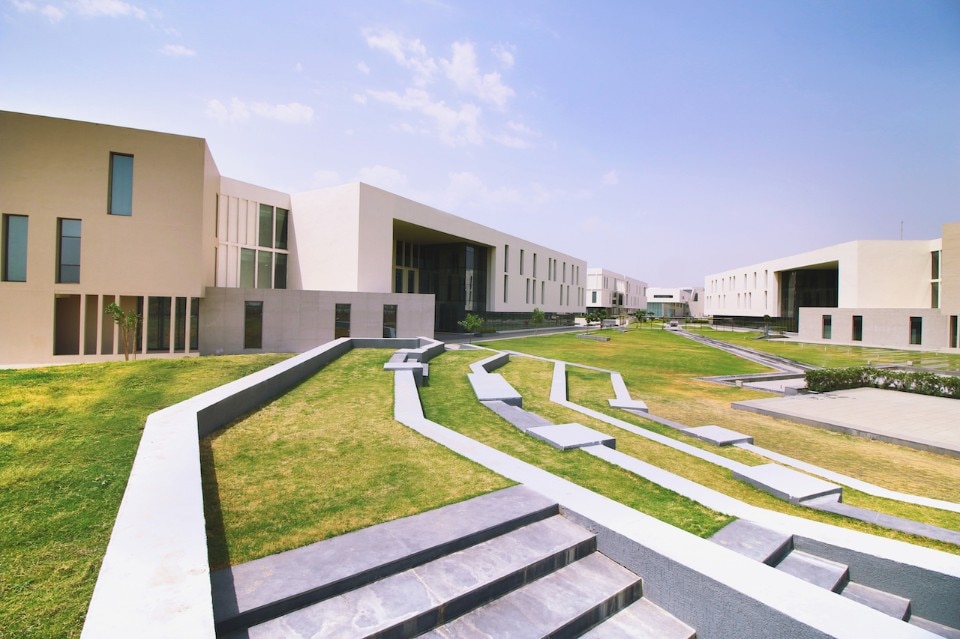
“The role of an architect is peripheral to the society, yet it is to become the guardian of space through a compassionate design approach”, elucidated Brinda Somaya, Chairperson - The HECAR Foundation & Founder, Somaya and Kalappa Consultants (SNK), Mumbai. She urged everyone to accord ‘dignity’ to women by respecting their individuality, giving them freedom and personal space and involving them in decision-making. Her reflection on the journey of Indian women architects, and the mention of Lavina Colgan Mody, one of the earliest women architects in India saw a poignant moment with the nonagenarian Lavina’s presence in the audience. Brinda’s association with community projects and women in construction echoed her design sensitivity.
Preserving ecology and naming designers as ‘custodians’ of architecture-design, Poonam V. Mascarenhas, founder-director, Archinova_Environs, Goa focused on the value attached to buildings in terms of space and materiality. Citing ownership of heritage as a nation’s responsibility, she mentioned the amendment in the Indian constitution that specifies valuing and preserving of the nation’s culture and heritage as a fundamental duty of every citizen.
Calling architecture a discipline, and extending the role of an architect to be a historian, urbanist, artist, archivist, polemicist, and lexicon builder, was Rupali Gupte, partner, BARDStudio, Mumbai. Her interdisciplinary roles resonated through her design interventions on various scales and contexts, reflecting her critical understanding and study of spaces and communities.
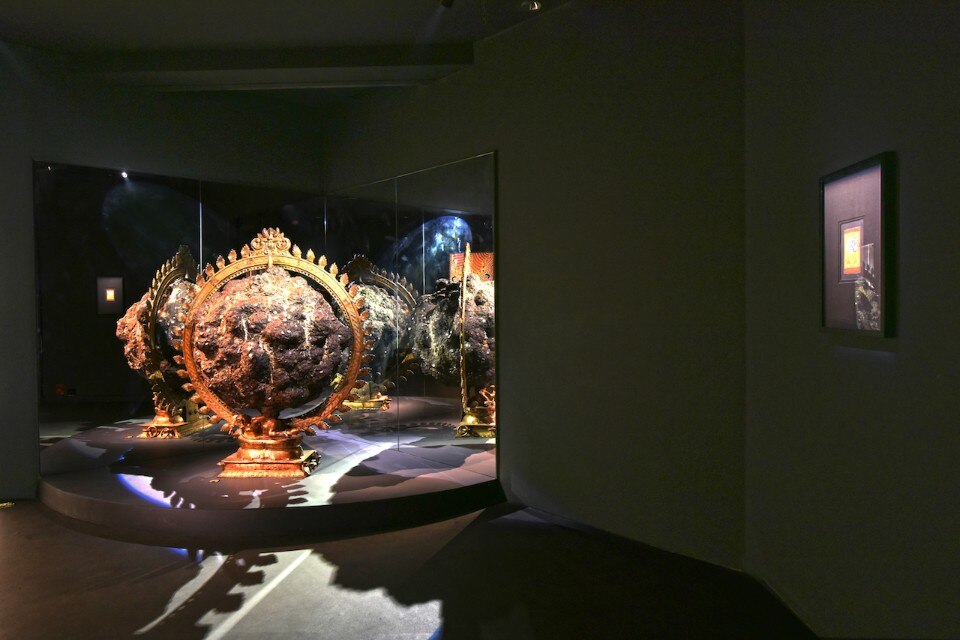
Nandini Somaya Sampat, Director, SNK, discussed the firm’s projects demonstrating the seamless adaptation of architecture to changing concepts, artefacts, and contexts; in turn, bestowing identity to the designed spaces by respecting their history and integrating them with crafts and technology. “Collaboration is about the ideas that never existed before anyone entered the room”, she said, indicating SNK’s design approach.
“Terraces are also designed”, said Chitra Vishvanath, MD, Biome Environmental Solutions, Bengaluru, elaborating on her designs of ecological architecture that probe into securing waste and treating water intelligently. Building primarily with mud and calling her practice ‘contemporary ecological’, Chitra’s architectural journey echoed her core idea to build responsibly, cost-effectively, and to make a positive addition to the environment.
The uncontrolled dumping of waste and the informal sector of waste collection in Cairo was brought into focus by Laila Iskandar, former minister of State for Urban Renewal and Informal Settlements, Egypt. Illuminating the pitiable state of low wages for scrappers and the manual segregation of scrap by women, she called for a paradigm shift in the understanding of waste industry norms.
Madhavi Desai, an architect and writer from Ahmedabad, deliberated on the lesser relevance of women designers in India as creators, users of public space, decision-makers, and their inability to gain critical mass. Her comprehensive research on the achievements of women architects in India was aptly supported by her dream of setting up a virtual platform for them.
On gender issues in practice, Samira Rathod, Founder, Samira Rathod Design Atelier, Mumbai, discussed the need for women to adapt to diverse roles and make informed choices. Professing her insecurity, she quipped, “I am never thrilled after a project completion. This insecurity keeps on pushing me to deliver my best. My happiness quotient comes from the fact that I have to get up and go to work every morning.” Shubhra Raje, an architect and educator, based in the US and India, spoke about building relationships in gender diversity. She rooted for ‘building less’ and accepting sustainability as a way of life. Downplaying her roles of juggling her work in India and the US, she said, “What has to be consistent is the way I work, and the values I work with.”
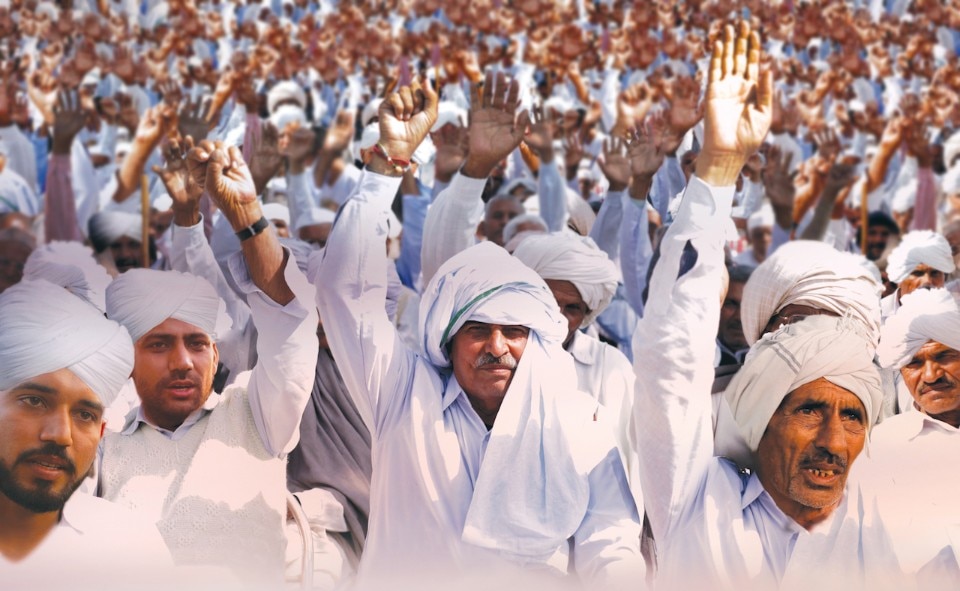
“Easy to sensationalise, but difficult to sensitise” – Indian journalist and filmmaker Vibha Bakshi’s thoughts and path-breaking movies on social issues were heart-wrenching. One of the films documented the post happenings of a rape case in India, while another celebrated men for rising to protect the girls of their town.
In quest of a day when these gender discussions would stop, the speakers encouraged women to stand up for themselves, inspire and collaborate, move outside the comfort zone, and work on larger infrastructure projects. Twenty years since the first edition of the conference, this one underlined the journey of two decades for women in the field. “I invite you all to think in terms of our gain from this conference that can lead to greater equality for women, and get us what we deserve’, concluded Brinda.
Screening of films on women, documenting thoughts of a few from the pre-independence era, an exhibition featuring manifestos of women designers, journey of women architects in Germany and an installation of woven fabrics by craftswomen ensured that the sense of reverence, empathy, pride, inspiration, and gratification engulfed everyone alike, over the three days!


